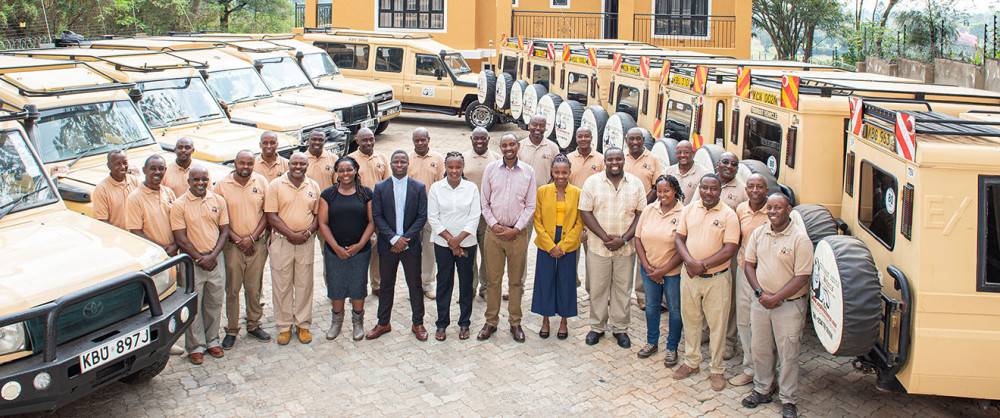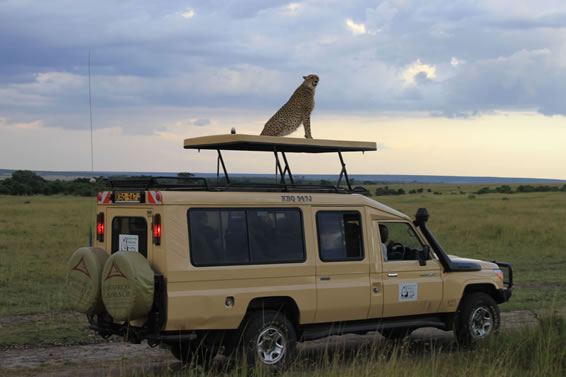Handy Facts To Choosing Diani Beach Taxi
Handy Facts To Choosing Diani Beach Taxi
Blog Article
What Are The Travel Arrangements I Should Be Aware Of While Visiting Mombasa In Kenya?
To ensure that your trip Mombasa in Kenya is enjoyable and hassle-free, you need to be aware of many choices of transportation that are available. Here are the most important considerations for transportation that you should take into account:
1. How to get to Mombasa
Moi International Airport is the primary air terminal for Mombasa. It offers international and local flights. Numerous major airlines provide flights between and to Mombasa.
By Train By Train Madaraka, owned by Kenya Railways offers a modern rail service that is easy to travel between Nairobi Kenya, Nairobi, and Mombasa.
By bus: Many bus companies, such as Modern Coast and Coast Bus offer bus routes between Mombasa and other cities in Kenya.
2. Local Transportation in Mombasa
Taxis and Ride-Hailing services Taxis are readily available. Ride-hailing companies like Uber and Bolt operate in Mombasa, providing convenient options for travel.
Three-wheeled vehicles, known as tuk-tuks, are an inexpensive and popular way to move around in the city. They are suitable for shorter distances.
Matatus: These are public minibuses which follow certain routes. They are the most frequent form of public transport. It's a cost-effective alternative, but it could be very crowded.
Boda-bodas are available as well for those looking to travel quickly and easily particularly for shorter distances, or in regions with significant traffic.
3. Car Rentals
Self-Drive Car rental is available at the airport as well as in the city. Rental companies, both local and international provide a variety of vehicles. Be familiar with local traffic and driving regulations.
Service for Chauffeur: If you aren't keen on driving yourself and want to hire a chauffeured vehicle, a chauffeured rental service is also offered.
4. Ferry Services
Likoni-Ferry: This ferry connects Mombasa to the southern part of Mombasa, which is located on the mainland. The ferry is necessary to get access to the southern beaches. It is free for pedestrians. Vehicles are assessed a fee.
5. Excursions, Day Trips, and Other Activities
Tour Operators: Many tour operators provide organized excursions to popular attractions like the Mombasa Marine National Park, Fort Jesus, and nearby beaches such as Diani and Nyali. The tours typically include transportation.
Public Transportation: For solo travelers, using a combination of matatus, tuk-tuks, and taxis, you can reach numerous attractions.
6. Walking and Cycling
Bicycle Rentals: A few locations, particularly along coastline, provide bicycle rentals to enjoy a leisurely ride.
Walking is possible around Mombasa. Especially in the Old Town or along the beach.
7. Travel Tips
Use taxis only if they are reputable and stay clear of public transportation during the night. Be aware of your possessions.
Negotiation: If you are using taxis or tuk-tuks you should negotiate the price before beginning your journey, as meters are seldom used.
Traffic: Expect a lot of traffic on the Likoni Ferry as well as in the central business districts at peak times.
If you are well-informed about the different transport options and have made all the arrangements required, your trip will be hassle-free. Check out the recommended kenya mombasa train for website recommendations including kenya travel packages, kenya safaris and tours, travel tours in kenya, afri safari, kenya beach mombasa, safari mombasa kenya, mombasa tour packages, safari a nairobi, tour and travel company, travel tour companies and more.
What Do Considerations Should I Know When Holidaying In Mombasa, Kenya?
It is important to understand the weather patterns in Mombasa prior to packing your bags and enjoy your time off. Here are the main aspects of the weather.
1. Climate Overview
Mombasa is a tropical city that has high temperatures all year round. Expect a warm and humid climate with temperatures ranging between 24degC (75degF) up to 32degC (90degF).
2. Seasons
The Hot and Humid season (November-April) is characterized by extreme temperatures and high humidity. It is also a busy tourism season, especially during December and January.
Long rains: (April-June) The rainy season is characterized by heavy rains and storms. It is possible for roads to be flooded. This is the low season for tourism.
Cooler Season (June - October): Enjoy the cooler temperatures and less humidity in this time. The weather is generally pleasant, which makes it a great time for outdoor pursuits.
Short Rains: During this time it is a time of fewer and less severe rain showers. The rains are usually only a few minutes, they are followed by sun.
3. Packing Tips
Lightweight Clothing - Pack clothes that's breathable and lightweight like linen or cotton to stay cool when the weather is hot and humid.
Rain gear: If you are you're traveling in the rainy season make sure you have a waterproof jacket, an umbrella, and footwear that is waterproof.
Sun Protection: A sunscreen that has a high sun protection factor (SPF), a wide-brimmed cap, sunglasses and light clothing covering your skin can help keep your skin safe from the harsh sun.
Swimwear: Don't forget your swimsuits for the pool and beaches at hotels.
4. Weather-specific activities
Beach Time: The ideal time to go to the beach is in the cooler seasons (June to October) when the weather is warm and the sea conditions are favorable.
The clear, calm water from November to March is perfect for snorkeling diving, snorkeling and other water sports.
Wildlife viewing: Now that the weather gets better, it is a great time to take a safari or nature excursions.
5. Health Concerns
Stay hydrated. The hot and humid climate will require you to stay hydrated. Drink plenty of fluids, particularly during your time outdoors.
Heat-related Infections: Know that heatstroke and heat exhaustion could be a possibility. Wear loose clothes, take breaks under the shade and stay away from intense exercise in the heat of the day.
6. Travel Adjustments
Rainy Season Travel: Prepare to face travel delays and interruptions when you travel in the season of rain. Some roads might be blocked. Outdoor activities are likely to be restricted.
The rainy season is often causes of flight delays. Be aware of your travel plans and make arrangements for contingencies.
7. Environmental Considerations
Natural Hazards - Remember that heavy rain can cause flooding. Always stay informed of weather conditions. Also, follow any local safety instructions.
Be mindful of the tides. They can be unpredictable and can significantly impact beach activities. Look up local tide charts to ensure safe swimming, beachcombing, and many other activities.
Knowing these weather conditions can help you plan your trip and prepare appropriately, so that you can enjoy your trip in Mombasa safely. Take a look at the recommended kenya tours and safaris for site info including safari mombasa kenya, kenya safari and beach, african safari packages, tour company, tour and travel company, kenya beach and safari holiday, tours and safaris in kenya, safaris beach, african safari tours, afri safari and more.
What Environmental Requirements Do I Need To Know When Holidaying What Environmental Responsibilities Should I Be Aware Of When Traveling Mombasa, Kenya?
Being responsible for the environment when you go traveling in Mombasa is essential to protect the natural beauty of the area and its rich biodiversity. Here are some of the most important environmental obligations to be aware of:
1. Sustainable Accommodation
Eco-friendly hotels: Choose a hotel that practices sustainability. Find eco-labels, such as Eco-Tourism Kenya.
Resource Conservation: Join in hotel initiatives to conserving electricity and water. Reuse linens and towels Turn off lighting and air conditioning when in use.
2. Responsible Monitoring of Wildlife
Be respectful of wildlife. Do not disturb animals by ensuring that there is your space secure and them. Follow the instructions given by your tour leader.
Do not feed wild animals. Feeding wildlife can alter their eating habits and behaviors.
Leave No Trace. Don't litter wildlife reserves or parks. Take all of your trash and dispose of it properly.
3. Plastic Reduction
Minimize Plastic Use: Avoid single-use plastics. Keep a water bottle in your bag or bag that is reusable, as well as utensils.
Help local initiatives in your area. Participate in local beach clean-ups or join organizations that help lessen the impact of plastic pollution.
4. Water Conservation
Mombasa is suffering from water shortage. Make shorter showers and switch off the water when it is not in use.
Make use of eco-friendly and biodegradable toiletries to reduce the amount of water used, use biodegradable and environmentally-friendly toiletries.
5. Energy Conservation
Reduce your energy use by limiting the usage of air conditioning. Unplug any devices when they are not in use.
Support Renewable Energy Select accommodations and tour operators that make use of renewable energy sources.
6. Sustainable Transportation
Reduce your carbon footprint using public transportation, like matatus or buses whenever possible.
Think about short-distance walks or renting bikes. Some areas have eco-friendly tuk tuks.
7. Aiding Local Economic Development
Buy locally: Help support local businesses by buying food items, souvenirs, and crafts from local merchants.
Fair Trade: Buy items that are certified fair trade to ensure that local farmers are compensated fairly.
8. Environmental Education
Learn and share - Educate yourself on the environment in your area, as well as the conservation efforts. You can share what you've learned in order to increase awareness.
Respect local cultures: Learn about and respect local customs and practices relating to the conservation of our environment.
9. Marine Conservation
Responsible Snorkeling and Diving: Avoid touching or stepping onto coral reefs. Make sure you use sunscreen safe for reefs to help ensure the safety of marine life.
Avoid disposing of trash in the ocean. Participate in or support marine conservation programs.
10. Ethical Souvenirs
Beware of Wildlife Products Avoid purchasing products made from endangered species, such as ivory or tortoiseshell.
Sustainable Materials Choose souvenirs from recycled or sustainable materials.
11. Participate in Conservation Activities
Volunteering: Participate in local conservation efforts or community-based tourism projects.
Support NGOs: Donate to or support local NGOs and conservation organizations working to protect the environment.
12. A responsible traveler is a great idea
Group Size: Travel in small groups in order to minimize the environmental impact.
Eco-Tours - Choose tour operators that are committed to sustainability and eco-friendly practices.
By keeping these environmental responsibilities in mind, you'll be able to help preserve Mombasa's natural resources, and ensure that the beauty and diversity of the region are maintained for future generations. Take a look at the top mombasa old town for site advice including afri safari, travel tour companies, kenya travel packages, kenya beach and safari holiday, tour agents in kenya, travel tours in kenya, mombasa beach kenya, kenya safari holiday packages, kenya tourism, mombasa tour packages and more.